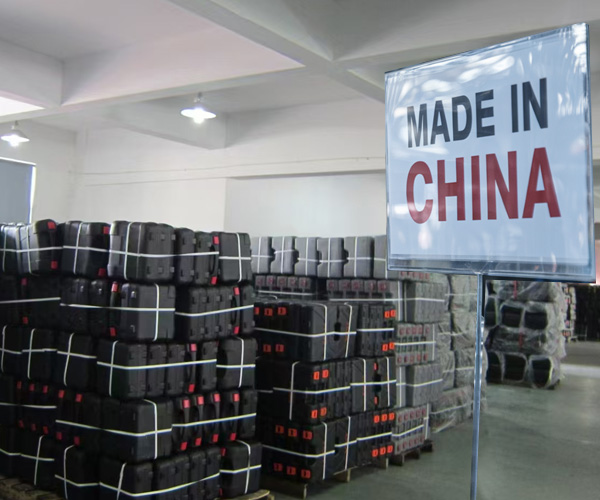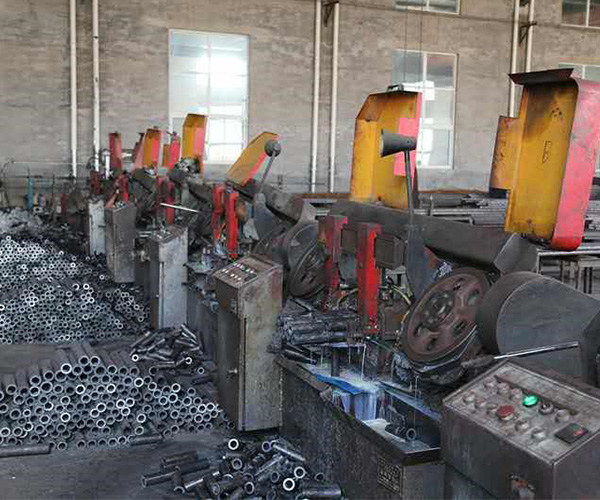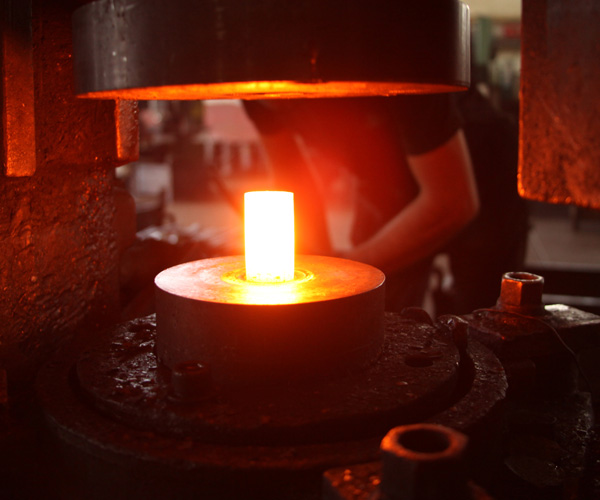Choosing the right tools can feel like navigating a hardware maze, especially when it comes to sockets. Impact sockets and regular sockets, while appearing similar, serve distinctly different purposes. Yet, many professionals and DIY enthusiasts often overlook these differences, leading to inefficiencies or even safety risks. This guide aims to demystify the distinctions and help you decide which type of socket best fits your needs. Whether you’re an automotive technician, a construction worker, or a weekend tinkerer, understanding the tools you use can make all the difference. Let’s dive deep into the world of sockets to uncover which is truly better for your tasks.
What Are Impact Sockets?
Impact sockets are specialized tools designed to handle the rigorous demands of high-torque power tools like impact wrenches. Their construction is tailored for strength, durability, and safety, making them indispensable in heavy-duty applications.
Materials and Manufacturing
Impact sockets are primarily made from chrome molybdenum steel, a material renowned for its resilience under extreme stress. This steel type offers superior tensile strength, allowing the socket to absorb the repetitive hammering forces generated by impact tools. The material’s toughness prevents cracking or shattering, a common issue with sockets made of weaker materials when exposed to high torque.
Design Features
One standout feature of impact sockets is their thicker walls. This design minimizes the risk of breakage, even when subjected to the intense forces of industrial machinery. Additionally, most impact sockets are coated with black oxide, a finish that resists corrosion and eliminates glare. This coating not only extends the life of the socket but also ensures a non-slip grip, which is critical in demanding environments.
Common Applications
Impact sockets excel in situations requiring repetitive, high-torque applications. Automotive mechanics rely on them for tasks like changing tires or removing rusted bolts. In industrial settings, they are crucial for assembling machinery, maintaining heavy equipment, or any job where regular sockets might fail. Their robustness also makes them ideal for tasks in construction, such as tightening structural bolts.
Safety Considerations
Another defining feature is their ability to absorb vibrations. This not only protects the socket itself but also safeguards the user and the power tool. By reducing the impact force transferred to the tool, impact sockets extend the lifespan of both the equipment and its accessories.
Understanding these characteristics sets the stage for appreciating why impact sockets are a staple in professional toolkits. They are not just more durable; they are purpose-built to endure the kind of punishment regular sockets cannot handle.
What Are Regular Sockets?
Regular sockets, often referred to as hand-tool sockets, are the workhorses of many home workshops and professional settings. They are versatile, cost-effective, and perfect for lighter-duty tasks that don’t require the robust construction of impact sockets.
Materials and Composition
These sockets are typically made from chrome vanadium steel, a material known for its balance of strength and flexibility. This composition allows regular sockets to handle moderate torque without deforming while keeping them lightweight and easy to use. The polished chrome finish is another hallmark, providing a sleek, corrosion-resistant surface that’s also easy to clean.
Design Features
The design of regular sockets prioritizes ease of use. With thinner walls compared to their impact counterparts, regular sockets can fit into tighter spaces, making them invaluable for tasks requiring precision. They also come in a wide variety of sizes and configurations, including deep and shallow sockets, ensuring compatibility with diverse fastener shapes.
Common Applications
Regular sockets shine in low-to-moderate torque applications. Tasks like assembling furniture, performing light automotive repairs, or fixing household appliances are where these tools excel. Because they’re used with hand tools like ratchets and torque wrenches, regular sockets are less likely to be exposed to the high-stress conditions that impact sockets endure.
Durability and Limitations
While regular sockets are durable for their intended uses, they have limitations. Using them with power tools can lead to cracking or stripping due to their inability to withstand high torque. This makes them unsuitable for heavy-duty tasks, particularly in professional or industrial environments.
Cost-Effectiveness
For DIY enthusiasts or professionals needing a reliable tool for everyday tasks, regular sockets are a cost-effective choice. They offer excellent performance for their price and are widely available, making them a go-to option for many users.
By understanding their strengths and limitations, you can appreciate the niche regular sockets fill. They may not be as tough as impact sockets, but for the right job, they are an invaluable tool.
Key Differences at a Glance
Understanding the core differences between impact sockets and regular sockets can save time, money, and potential safety issues. Below, we explore these differences in detail to help you choose wisely.
Material Strength
Impact sockets, made from chrome molybdenum, are specifically engineered to handle higher stress levels than the chrome vanadium used in regular sockets. The added strength of impact sockets means they won’t shatter under high torque, whereas regular sockets may fail in such conditions.
Coating and Finish
The black oxide coating on impact sockets prevents rust and eliminates glare, which is particularly useful in brightly lit or outdoor environments. Regular sockets, with their polished chrome finish, are visually appealing but more prone to scratches and wear over time.
Wall Thickness
The thicker walls of impact sockets are designed to endure the repetitive hammering of impact wrenches. This makes them bulkier but far more durable. Regular sockets, with their thinner walls, are better suited for tight spaces but lack the robustness for high-impact tasks.
Safety Features
Impact sockets are less likely to crack or shatter, reducing the risk of flying debris—a critical safety advantage. Regular sockets lack this safety assurance, making them a potential hazard when misused with power tools.
Weight and Portability
The heft of impact sockets adds to their durability but makes them heavier to carry around. In contrast, regular sockets are lightweight, enhancing portability for on-the-go tasks.
Price and Value
Impact sockets are generally more expensive due to their specialized materials and construction. However, their durability often translates to better long-term value. Regular sockets, while cheaper upfront, may require more frequent replacement if subjected to misuse.
This side-by-side understanding highlights why choosing the right socket for your specific needs is essential. It’s not just about the job at hand but also about safety, efficiency, and overall cost.
Strength and Durability: Which One Wins?
When it comes to durability and strength, impact sockets clearly outshine regular sockets. This section delves into the specifics of why impact sockets are the go-to choice for heavy-duty work.
Construction for Strength
Impact sockets are built to withstand repetitive hammering and high torque, thanks to their thicker walls and durable materials. Chrome molybdenum, the primary material, is less brittle than chrome vanadium, ensuring the socket can handle more stress without cracking.
Fatigue Resistance
The ability of impact sockets to resist fatigue over time is another key advantage. Whether you’re using them daily in a professional setting or occasionally for DIY projects, these sockets maintain their integrity far longer than regular sockets.
Why Regular Sockets Fall Short
Regular sockets are not designed for the extreme conditions imposed by impact wrenches. When subjected to high torque, they can deform, crack, or even shatter, posing a risk to both the user and the tool. While they perform adequately for lighter tasks, their durability is limited when compared to impact sockets.
Practical Implications
Using a more durable tool not only ensures better performance but also translates to cost savings. The initial investment in impact sockets may be higher, but their extended lifespan and reliability make them a better choice for long-term use.
By focusing on strength and durability, it becomes clear that impact sockets are the preferred option for demanding applications. They offer a level of reliability and safety that regular sockets simply cannot match.
Safety Concerns: What’s at Stake?
When considering tools, safety often takes a backseat to performance or cost. However, the type of socket you use directly impacts not only efficiency but also your well-being. Let’s explore why safety should influence your decision.
Risks of Using Regular Sockets with Power Tools
Regular sockets are engineered for hand tools and moderate torque, not for the high-intensity forces of impact wrenches. Using them with power tools can lead to catastrophic failures. The thinner walls and harder, more brittle material of regular sockets increase the likelihood of cracking or shattering. These fragments can become dangerous projectiles, potentially injuring users or damaging surrounding equipment.
Built-In Safety Features of Impact Sockets
Impact sockets are purpose-built to mitigate safety risks. Their thicker walls and ductile chrome molybdenum material absorb and distribute the high forces from impact tools. Additionally, the black oxide coating provides a non-slip grip, reducing the chances of the socket slipping off the tool or fastener during use.
Vibration Reduction
A lesser-known feature of impact sockets is their ability to dampen vibrations. This not only protects the socket but also reduces wear on the power tool. More importantly, it minimizes the strain on the user’s hands and arms, lowering the risk of repetitive strain injuries.
Safe Practices for Socket Use
Regardless of the socket type, following safe usage practices is essential. Always match the socket to the tool and task. Ensure sockets are properly seated on fasteners to prevent slippage. Regularly inspect tools for signs of wear or damage. For high-torque applications, using the correct impact-rated sockets is non-negotiable.
By prioritizing safety, you protect not just your tools but also yourself. Impact sockets offer a safer, more reliable option for demanding tasks, ensuring peace of mind and preventing accidents.
Compatibility with Tools
Choosing the right socket type goes beyond durability and strength; it’s also about compatibility. Pairing the correct socket with the appropriate tool ensures efficient, safe operation and extends the life of both.
Regular Sockets on Impact Wrenches: A Recipe for Disaster
One common mistake is using regular sockets on impact wrenches. These tools generate intense torque that regular sockets cannot handle. The resulting stress often leads to cracks or deformation, rendering the socket unusable and potentially damaging the tool or injuring the user.
Why Impact Sockets Shine with Power Tools
Impact sockets are specifically designed for power tools like impact wrenches and drills. Their thicker walls, robust material, and vibration-absorbing properties make them ideal for high-torque applications. These sockets maintain their shape and integrity, ensuring reliable performance even under extreme conditions.
Hand Tools and Impact Sockets: A Perfect Match?
While impact sockets can be used with hand tools, their bulkier design and added weight might feel cumbersome for tasks requiring precision or prolonged use. However, their durability means they are less prone to wear and tear, making them a long-lasting option for hand tool users.
Finding the Right Fit
When selecting sockets, consider the tools in your arsenal. For power tools, always opt for impact-rated sockets. For hand tools and lighter applications, regular sockets offer convenience and precision. Ensure compatibility not just in terms of strength but also fit—mismatched sizes can damage both the socket and the fastener.
Understanding tool compatibility ensures you get the most out of your equipment. The right pairing boosts performance and safety, making your tasks smoother and more efficient.
Cost Considerations
Cost is often a deciding factor when choosing tools. While impact sockets are more expensive upfront, their long-term value often outweighs the initial investment. Let’s break down the economics of both options.
Upfront Costs
Regular sockets are generally cheaper than their impact counterparts. For occasional or light-duty tasks, this makes them an attractive option. Their availability in a wide range of sets and sizes also adds to their affordability. However, this lower price comes at a cost—durability and safety.
Longevity and Replacement Costs
Impact sockets are built to last. Their robust construction means they can withstand years of heavy use, reducing the need for frequent replacements. In contrast, regular sockets, when exposed to high torque or frequent use, wear out more quickly, leading to recurring expenses.
The Hidden Costs of Misuse
Using regular sockets with power tools can result in tool damage, injuries, and project delays. These hidden costs can far exceed the price difference between regular and impact sockets. Investing in the right tool from the start avoids these pitfalls.
Balancing Cost and Need
For professionals and heavy-duty users, impact sockets offer better value over time despite the higher upfront cost. For DIY enthusiasts or those handling lighter tasks, regular sockets are often sufficient. The key is to assess your needs and choose accordingly.
Cost considerations go beyond price tags. By weighing upfront costs against long-term value and safety, you can make an informed decision that fits your budget and requirements.
Conclusion: Which is Better for You?
Impact sockets and regular sockets each serve distinct purposes. Impact sockets are the clear winner for durability, safety, and high-torque tasks. Regular sockets, on the other hand, are ideal for lighter, precision-based applications. Your choice depends on your tools, tasks, and budget. Always prioritize safety and compatibility to get the best performance from your sockets. The right choice today can save you time, money, and frustration tomorrow.





